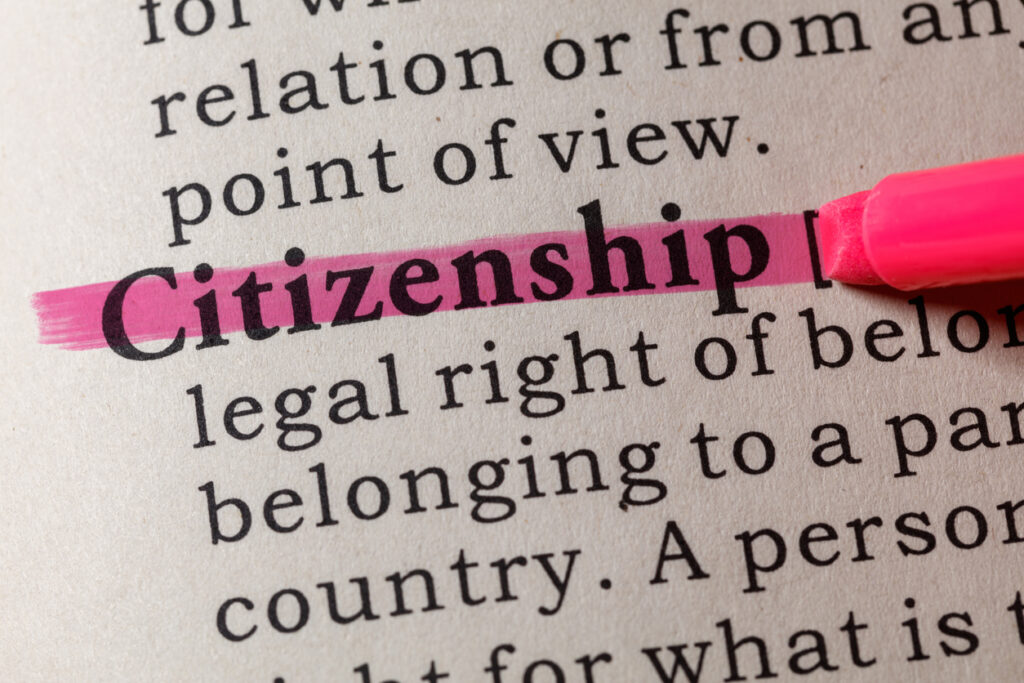The National Coalition Against Censorship’s Student Advocates for Speech program was created in 2022 to provide participants with virtual advocacy training, opportunities to engage in national dialogues, and find outlets to amplify their voices. For the past two years, NCTE has worked in close partnership with NCAC on a project for student advocates to write op-eds about censorship issues that have particular meaning to them. For the next six weeks, these op-eds, written by students in the fall of 2023, will be featured here on the Literacy & NCTE blog. Student voices are often left out of conversations about policy, legislation, censorship, and access to a diverse and expansive education. NCTE and NCAC are proud to feature them here.
This blog post was written by Ankita Jaikumar, a tenth-grade student in Suwanee, Georgia.
Give me your tired, your poor, your huddled masses yearning to breathe free:
What does it mean to be “American”? Being born and raised in America, I’m constantly surrounded by reminders of what it means.
Patriotism.
Military.
Faith.
A fresh start.
A dream of star-studded skies and towering possibilities.
America is a melting pot of freedom and opportunity—at least, it’s supposed to be. In reality, it’s a place that doesn’t know the difference between tolerance and propaganda. I love America, don’t get me wrong. But I’m ethnically Hindu and Pakistani, which often bucks the norm of the white Christian version of an American that so many people still envision when they think of a fellow citizen. By not expanding our ideas of what it means to be American and stifling individuality, we are preventing our country from growth and truly being as great as we could be.
I have noticed that more often than not, many issues boil down to religion. Think about it: as a current student, the American pledge of allegiance has millions of students say “one nation, under God” almost every day. At my school, we have morning announcements asking us to take a moment out of our day after that same pledge to think about our goals and priorities for our day. A few decades back, that was, “take a moment to pray and think before we continue with the announcements.”
The average American is more likely to know who the Easter Bunny and Santa Claus are rather than know even the basic tenets of any other religion. There is nothing wrong with being religious—it becomes a problem when religion is weaponized as a way to prove a political agenda or shut down differing voices. We have holidays and laws set aside for those of the Christian faith and a history of shutting out anyone and anything that is different or challenges the way we think. We have laws like the Chinese Exclusion Act of 1882, the PATRIOT Act of 2001, and hundreds more that target minorities like women, people of color, the LGBTQIA+ community, and anything going against traditional Christian viewpoints.
While I don’t think that we can erase Christianity from the fabric of America (and neither do I want to), religion at my school is hard to bring up yet easy to see. I’ve never seen any of my Muslim or Hindu friends come to school with phrases from the Qur’an or the Bhagavad Gita on their shirts or a poster. Yet no matter where I go, there’s a bulletin board waving “John 3:16.” This is accepted in my school. A few days ago, I walked to my school library, and on the way, there was this huge bulletin board with stapled pages from the Bible and pockets filled with small psalms hung on the wall. I walked down the stairs and saw taped notes on the door that read “Jesus loves you.” I go to wash my hands in the bathroom and there are sticky notes on the mirror with psalms and religious assurances. It’s everywhere.
In contrast, my school’s Muslim Student Association has to advocate for itself at every level, from our elementary to high school, to have halal meat on the menu. A few weeks ago, they took it off the menu, and their president shared that that happened at an elementary school, too, but it was possible to get it back. Why do they have to fight so hard just to have the correct food choices for their religion? I’m not even sure if there are kosher meals for our Jewish students. And even with a large Asian population at my school, we only started having cultural events (like Garba night or Diwali celebrations) two years ago. I’ve never seen any celebrations for East/Southeast Asian cultural traditions either.
Beyond my school, to be religious nowadays is a political point, where politicians undermine the First Amendment and the promise they made to represent their constituents. They push Christian nationalism, forcing their beliefs onto everyone. This nationalism reinforces the idea that those not of the Christian faith or anyone who doesn’t agree with their opinions should “go back to their country” or “get with the program.” However, minority populations continue to grow, and eventually do influence more inclusive changes. Changes like New York becoming the first state to recognize Diwali as a holiday, or Georgia creating a month for Hinduism.
This casual alienation of millions of people is not just an American problem. But it is one of our biggest threats to democracy. Because democracy only works when citizens are allowed to express themselves. And when politicians deny that to the populace they represent, they deny themselves a true democracy.

My name is Ankita, and I will be a sophomore during the 2023–2024 school year! My passions lie in writing, music, and my community. I volunteer at my local library, participate in color guard, play flute and guitar, and write poetry whenever inspiration strikes me! I work as a volunteer editor for an organization and also hope to get my writing published somewhere. I am beyond excited to work for my community as a part of Student Advocates for Speech (SAS)!
It is the policy of NCTE in all publications, including the Literacy & NCTE blog, to provide a forum for the open discussion of ideas concerning the content and the teaching of English and the language arts. Publicity accorded to any particular point of view does not imply endorsement by the Executive Committee, the Board of Directors, or the membership at large, except in announcements of policy, where such endorsement is clearly specified.

